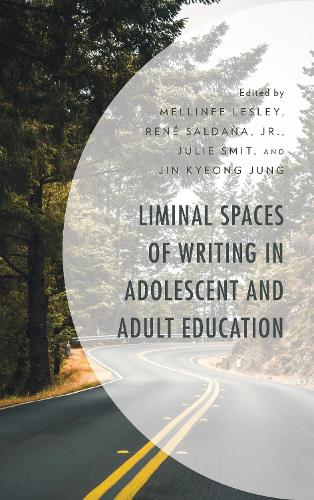
Liminal Spaces of Writing in Adolescent and Adult Education
(Hardback)
Publishing Details
Liminal Spaces of Writing in Adolescent and Adult Education
By (Author) Mellinee Lesley
Edited by Rene Saldana
Edited by Julie Smit
Edited by Jin Kyeong Jung
Contributions by Whitney Beach
Contributions by Kelly DeLong
Contributions by Rachel Graham
Contributions by Cameron James
Contributions by Elizabeth Davis Jones
Contributions by Jin Kyeong Jung
Bloomsbury Publishing PLC
Lexington Books/Fortress Academic
3rd March 2022
United States
Classifications
Professional and Scholarly
Non Fiction
Educational: Language, literature and literacy
808.042071
Physical Properties
Hardback
224
Width 163mm, Height 236mm, Spine 19mm
472g
Description
Liminal Spaces of Writing in Adolescent and Adult Education addresses the persistent gap in writing reform at the middle, secondary, and post-secondary level. Through an examination of useful and liminal writing, the book explores the intellectual and creative space where structured expectations verge with individual imagination in writing. The premise of the book is built around a multiplicity of ways to invite adolescent and adult students to enter into states of liminality where they are encouraged to experiment with style, form, genre, and voice. Through research featuring the perspectives of adolescents, classroom teachers, teacher educators, graduate students, and literacy researchers, the book offers numerous insights into fostering a liminal and useful approach to writing instruction. Each author takes the reader through a journey of finding the liminal as teachers, writers, and researchers. Taken together, this tapestry of perspectives puts forth the argument that liminal moments are necessary caveats to explore in order to cultivate fully actualized writing where students are in control of structures and traditional writing expectations but also free to imagine new ways of breaking with conventions and being as writers. Thus, the book argues liminal writing is critical in bringing about sustained writing reform.
Reviews
Gathering the voices of literacy scholars and youth writers themselves, Saldaa, Lesley, Smit, and Jung invite a range of conversations about thresholds and transitions, about forming and revising one's identity through writing. With contributions that explore topics ranging from the role of video games in English class to the nuanced work of autoethnography, each of the contributions in Liminal Spaces of Writing in Adolescent and Adult Education demands that readers rethink what counts as writing instruction, pushing educators to cross boundaries of their own. In doing so, the editors and their contributors encourage us to reimagine the complexities of genre, audience, and purpose so that we can create new spaces for our students as they, too, develop their writerly voices both in the classroom and beyond.
-- Dr. Troy Hicks, Central Michigan UniversityAuthor Bio
Mellinee Lesley is professor in the Language, Diversity & Literacy Studies program in the College of Education at Texas Tech University.
Ren Saldaa, Jr. is associate professor of Language, Diversity & Literacy Studies in the Department of Curriculum and instruction at Texas Tech University.
Julie Smit is associate professor of Language, Diversity & Literacy Studies in the Department of Curriculum and Instruction at Texas Tech University.
Jin Kyeong Jung is assistant professor of Language, Diversity & Literacy Studies in the Department of Curriculum and Instruction at Texas Tech University.
